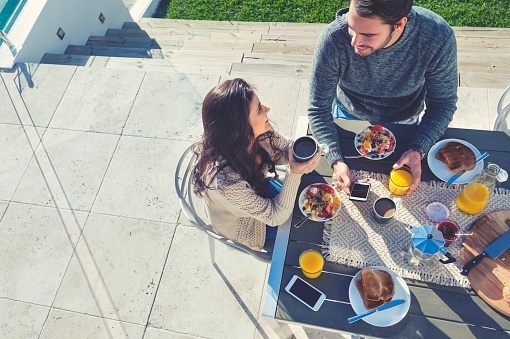Where to stay in Australia
There are various accommodation options available in Australia for students and overseas workers. Most institutions that accept international students will have information available on accommodation, including temporary housing for their first few weeks. Make sure you confirm what is available when you do your research.

Types of accommodation
Once you've confirmed where you're going to study/work, you can look for suitable accommodation.
Even though the majority of Australian students stay off-campus, some education institutions and universities do offer on-campus accommodation such as:
- Residential colleges: provide private or shared rooms, shared bathrooms, dining halls and recreation rooms as well as other support services for social and academic needs. They can be a little more expensive because of the additional services offered.
- Student apartments: single and shared apartments are often offered by universities on or near their campus. They provide more independent living in university-approved accommodation.
- Halls of residence: offer a social university life with fewer services than residential colleges. Most offer the option to have a private room and have a shared bathroom, kitchen and recreation areas.
Campus living can be a great option. It often supplies fully furnished housing options on or near the campus, and sometimes meals and cleaning are included. Campus housing can range from AU$80 to AU$280 per week. Contact your institution to find out the availability and costs of campus accommodation. Remember to apply early as places will be popular and limited.
There are also a large number of student accommodation providers in Australia that help students find suitable accommodation on or near their chosen campus. Some of these are:
You can choose to rent a property by yourself, or with your friends. You can rent property through a real estate agent, or privately. Depending on the type of rental (an apartment or a house), you can expect to pay anywhere between AU$165 to AU$440 per week as well as a security deposit, or bond, which is usually one month’s rent as well as rent in advance (between two to four weeks rent). The security deposit, or bond, is refunded when you leave and is used to repair the property if you, your housemates or guests damage the property during your stay. If you haven’t done any damage, the full amount should be refunded.
Studies in Australia offers some answers to frequently asked questions about renting in Australia.
As a tenant (person renting a property) you have rights and responsibilities. Visit the relevant Fair Trading website in the state or territory you're staying in to find out more.
Once you’ve confirmed where you're going to study and/or work, you can look for suitable accommodation. Remember:
- Accommodation costs will vary depending on the type of housing, the city and the state.
- Make sure you confirm all the costs and expenses you're going to be expected to pay such as the bond, if you need to pay for water and electricity, gas or other utilities.
- Consider the distance from your education institution/workplace and the time it will take to travel. Also look at options for public transportation.
- Remember to consider access to shops, doctors, hospitals, emergency services and other amenities nearby.
- Try to arrive in Australia a few weeks before orientation, so you have time to finalise long-term accommodation before classes start.
Example: Zoe has found two places to stay. The first accommodation costs a little more each week, but it is very close to her school, and she will not need to pay for transportation. She also finds it is close to some shops where she can do her groceries. When she looks at the extra costs for transportation and the distance from shops and other amenities at the second housing option, she decides it is worth paying a little more for the convenience, and she chooses the first housing option.